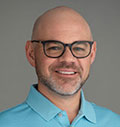
Academic Integrative Health Fellowship
Seth Barudin, MD, is a family medicine doctor at UW Health and a clinical associate professor in the Department of Family Medicine and Community Health at the University of Wisconsin School of Medicine and Public Health. Dr. Barudin provides health care for patients of all ages.
From newborn to end-of-life care, Dr. Barudin cares for patients and families through every stage of life. He diagnoses and treats a variety of conditions, ranging from infections, cold and flu to chronic diseases and disorders like diabetes, high blood pressure, asthma and mental health concerns. He performs well-child visits and offers preventive care, pediatric care and geriatric support. He has a special interest in labor and delivery, and provides obstetric, gynecologic and maternity health services for mothers-to-be and their families.
Dr. Barudin strives to be a supportive advocate for his patients and their families through every step of their health journey. He takes time to help patients understand their conditions so they can make informed decisions that are best for them. His goal with every patient is to build a meaningful relationship based on trust and kindness.
In his free time, Dr. Barudin enjoys soccer, jam bands, theater, cooking and making his kids laugh. He is passionate about social justice and improving health equality in his community.
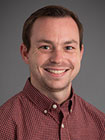
Addiction Medicine Fellowship
Max Butler earned his undergraduate degree in Biology from Oberlin College and his medical degree from the University of Wisconsin School of Medicine and Public Health. He then went on to complete his family medicine residency training at the University of Michigan. As a medical student and later as a family medicine physician, he witnessed firsthand the suffering of those affected by substance use disorders as well as the profound impact of addiction treatment on their lives and those around them. People with substance use disorders have often felt dismissed and excluded from health care settings. He decided to pursue a fellowship in addiction medicine to improve his ability to create a welcoming space for people to receive the best evidence-based, compassionate, and non-judgmental addiction treatment possible. In his free time, Dr. Butler enjoys running, paddleboarding, reading, playing clarinet, and anything involving a lake, including of course the Memorial Union Terrace.
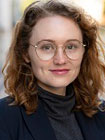
Primary Care Research Fellowship
Emily Claypool, PhD (she/her/hers) joined DFMCH as a fellow in 2024. Claypool earned her PhD at the University of Chicago Crown Family School of Social Work, Policy & Practice where she also completed a NIH T32 predoctoral fellowship in health services research. Supported by the Fahs-Beck Fund for Research and Experimentation, her dissertation titled “What does it mean ‘to work’? The Politics of Scientific Reform in a Harm Reduction Clinical Trial” ethnographically investigated a type-1 hybrid effectiveness-implementation trial of a harm reduction and peer recovery intervention to prevent opioid overdose among people recently released from jail and prison. She examined the micro-interactional dynamics of how researchers of various disciplines, clinicians, activists, and carceral administrators collaborated amidst diverging ethical and institutional obligations and professional commitments. Working alongside trial actors for over two years, she demonstrated how the paradigm of the clinical trial and the institutional demands to which it must adhere often override the goals of practitioners and researchers for social and structural change.
Claypool’s research draws on science and technology studies (STS), implementation science, and extensive experience participating in the conduct of large-scale clinical trials to understand the institutional, political, and social conditions that shape service users’ trust and mistrust in health service systems and the technologies researchers advance or implement. She is particularly interested in understanding the contemporary social conditions that engender (mis)trust in experts and how scientific values and increasing trends toward “evidence-based” practices are negotiated with the fundamental ethical, moral, and social values of both health service users and providers during the interactive practice of knowledge “translation.”
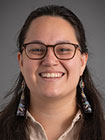
Rural Family Medicine Obstetrics (FMOB) Fellowship
River Cornelius, MD (they/them) is an Oneida (Turtle Clan) and Two Spirit physician trained in family medicine. After completing their undergraduate studies at Harvard University with degrees in molecular and cellular biology and global health and health policy, Cornelius went on to graduate from the University of Washington School of Medicine. There they completed the Indian Health pathway and took on leadership through Medicine Wheel Society and the Addiction Medicine Interest Group. They contributed to curriculum change regarding both addiction medicine and missing and murdered Indigenous women and people and participated in research describing potential protective factors in Indigenous communities regarding substance use. They completed their training through the Swedish Cherry Hill Family Medicine Residency (Seattle, WA) with their continuity clinic at the Seattle Indian Health Board. During their residency, they assisted with establishing a standardized prenatal chart review and expanded 2SLGBTQ+ care at their clinic and took on leadership as an OB lead resident during their last year.
Cornelius has spoken on Two Spirit health disparities on multiple occasions including the International Meeting on Indigenous Child Health (Oklahoma City, 2023) and the Pacific Region Indigenous Doctors Congress (Vancouver, B.C., 2022). However, some of their most formative experiences centered around consistently volunteering for land rehabilitation and reclamation for the Snoqualmie Tribe throughout medical school and residency, an experience that provided personal growth and grounding.
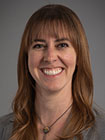
Primary Care Research Fellowship
Katherine Cornwall, PhD (she/her), joined DFMCH in 2025 as a fellow. Her background in environmental studies and sciences inspired her research interests in the intersection of climate change and mental health. Her dissertation explored a paradox of environmental action: individuals must urgently engage with the health of our planet, as attitudes, beliefs, and behaviors shape the trajectory of climate change. Yet evidence increasingly shows that such engagement can exact a heavy emotional toll, often leading to disengagement as a means of self-preservation. Cornwall approached this dilemma with an educational lens, leveraging motivation and emotion regulation in the navigation of the paradox.
As a 500-hour registered yoga teacher, Cornwall has immersed herself in practices of self-study and regularly shares these approaches with others. She plans to integrate meditation, breathwork, and other contemplative practices into her current research, examining how such methods may foster resilience in the face of the climate crisis. She also hopes connecting with oneself will help people feel more connection with nature and community. At the University of Wisconsin-Madison, Cornwall collaborates with the Loka Initiative at the Center for Healthy Minds and is affiliated with the Nelson Institute for Environmental Studies.
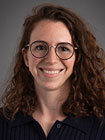
Addiction Medicine Fellowship
Maggie Gray earned her undergraduate degree in Anthropology from Yale University and her medical degree from Vanderbilt University School of Medicine. She then completed her Internal medicine residency training at the University of California San Francisco. She first became interested in Addiction Medicine as a live-in social work intern at a residential facility for individuals with co-occurring HIV and Substance Use Disorder(s). Closely witnessing the impact of unhealthy substance use on the residents’ lives is what led her to apply to medical school and ultimately to a career in Addiction Medicine. Dr. Gray has specific interests in the integration of primary and SUD care, expanding access and retention in SUD care in rural areas, and the role of novel psychoactive substances in SUD treatment. Outside of work, Dr. Gray can mostly be found running after her little ones, but she also enjoys hiking, quilting, trying new recipes, and cozy mysteries.
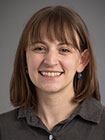
Academic Integrative Health Fellowship
Allie Hecht (she/her) grew up in Westfield, NJ. Hecht earned her undergraduate degree at McGill University in Montreal, QC and her medical degree from Rowan-Virtua School of Osteopathic Medicine in New Jersey. She completed her Family Medicine residency training at Penn Medicine Lancaster General Health in Lancaster, PA. Her passion for integrative approaches to healing began prior to medical school – both in her personal health journey and bringing non-conventional healing modalities to patients, particularly in underserved communities. Within integrative family medicine, she has special interests in Osteopathic Manipulative Treatment, culinary medicine and reproductive health. She has also completed her 200-hour yoga teacher training, with the intention of bringing these principles and skills into her practice of medicine. Outside of work, she enjoys cooking plant-based meals, singing, hiking with her partner and spending quality time with family and friends.
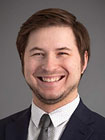
Primary Care Research Fellowship
Michael Jaeb, PhD, RN (he/him/his) joined DFMCH as a fellow in 2025. For his dissertation, Jaeb explored how specific clinician communication strategies may be implicated in patients’ emotional responses during chronic condition management visits. He also identified various interactional strategies that patients demonstrated when raising concerns during these visits.
During Jaeb’s fellowship, he aims to extend his program of research by investigating how artificial intelligence dictation and documentation software is shaping clinician-patient communication.
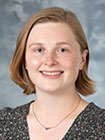
Academic Fellowship
Kimberly Krawzak, MD (she/her), was born and raised in Streamwood, IL. She earned her undergraduate degree in Biology and Biochemistry from Lawrence University in Appleton, WI. While in Appleton, Kimberly volunteered with a local hospice organization, where she enjoyed getting to know patients and their families and sharing in their grief, happiness, and nostalgia. She returned to Illinois and earned her medical degree from the University of Illinois College of Medicine – Peoria. As a member of the public health interest group, Kimberly helped organize the annual Health Disparity Forums for the local community. Her experience coordinating the disability and ableism workshop helped shape her passion of working to ensure that healthcare services are accessible to all patients. She also conducted research on patients’ experiences utilizing food pantries, soup kitchens, and government assistance to combat food insecurity. This has inspired her to think creatively about working with patients and building coalitions of community partners to break down complex social situations. Kimberly strives to provide public health-informed family medicine to resolve health disparities and provide holistic patient care. Kimberly’s hobbies include collecting indoor plants, finding new places to eat, hiking, singing, painting, video games, and enjoying the next big Netflix show.
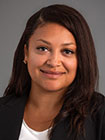
Primary Care Research Fellowship
Melissa Neal, PhD, MPH (she/her/hers) joined DFMCH in 2025 as a fellow. Neal is a public health researcher committed to advancing health equity and improving maternal and child outcomes for historically marginalized communities.
Neal earned her PhD in public and community health from the Medical College of Wisconsin and Master of Public Health (MPH) from the University of Wisconsin-Milwaukee.
Using mixed-methods approaches, her dissertation focused on the impact of racism, stress, and resilience on adverse pregnancy outcomes among African American women in Milwaukee, WI. Her dissertation received national and local recognition, including the American Heart Association’s Research Supplement to Promote Diversity in Science and Medical College of Wisconsin’s Outstanding Contribution to Public Health Dissertation awards.
In July 2025, she started the T32 Primary Care Research Fellowship in the University of Wisconsin Department of Family Medicine and Community Health, where she plans to expand her research on stress, hypertensive disorders of pregnancy, and the prevention of cardiovascular disease.
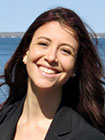
Primary Care Research Fellowship
Dr. Laura Andrea Prieto is from Bogotá, Colombia and grew up in Las Vegas, Nevada. Dr. Prieto earned her PhD in Kinesiolgy at the University of Wisconsin-Madison with a concentration on Motor Control and Behavior and adapted physical activity. Her research focus is on adapted physical activity and dance for people with disabilities, specifically for Latine/x older adults with disabilities. She has worked with adults and children with disabilities in community centers, schools, and dance studios to promote active lifestyles through movement. Dr. Prieto’s dissertation work focused on the planning and evaluation of community-based physical activity programs including the evaluation of a program for autistic children and their families and the planning of future program for Latine/x older adults. Dr. Prieto plans to expand her dissertation work to working with Latine/x older adults with Parkinson’s disease in and out of the United States with the direction of Dr. Kristen Pickett in the Department of Kinesiology. Outside of research, Dr. Prieto enjoys dancing, being outdoors, and having “asados” or cookouts with family and friends.
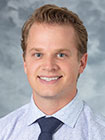
Academic Fellowship
Kyle Sherwin, DO (he/him/his) enjoys providing full-spectrum osteopathic family medicine by treating patients wholistically. Sherwin has a strong interest in academic medicine because he is a teacher at heart and prioritizes teaching his patients about their health conditions, most notably at group medical visits in residency. He has had the opportunity to teach peers osteopathic manipulation in medical school and residency and looks forward to teaching residents as a fellow. He strives to advance the education of residents on a national level through is position on the Osteopathic Recognition Committee with the ACGME.
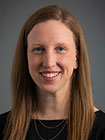
Primary Care Research Fellowship
Elizabeth Ver Hoeve, PhD (she/her/hers) joined DFMCH in 2024 as a fellow. She received her PhD in clinical psychology with a specialization in health psychology from the University of Arizona. Her academic training, clinical training, and research experiences focused on characterizing and intervening on biopsychosocial factors that impact the lives of individuals as they adjust to health-related challenges such as cancer diagnosis and treatment. Her research focuses on health equity, treatment adherence, and biobehavioral oncology.
For her dissertation, Ver Hoeve evaluated the implementation effectiveness of an evidence-based bilingual and bicultural community-focused patient navigation intervention at an NCI-designated cancer center.
As part of the Primary Care Research T32 Fellowship, Ver Hoeve will utilize implementation science principles to quantitatively and qualitatively address care coordination and integration challenges between primary care and oncology care services with particular attention toward medically underserved patients in primary care settings across the state of Wisconsin.
Outside of research and clinical work, Ver Hoeve enjoys spending time with her family, working on house projects, and exploring Madison parks.
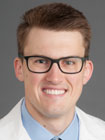
Primary Care Sports Medicine Fellowship
Matthew Waldrop, MD is originally from Wisconsin and received his undergraduate degree from the University of Wisconsin-La Crosse. He earned his medical degree from the Medical College of Wisconsin-Green Bay. Matthew completed family medicine residency at Wake Forest University in Winston-Salem, North Carolina. He’s thrilled to be returning home to join the UW-Madison sports medicine team. As a lifelong Badger fan, Matthew says it’s a dream come true to support the same athletic programs he grew up watching, while also caring for the broader Madison community. He’s especially excited to learn from such a dedicated and experienced group of faculty and staff. Outside of medicine, Matthew enjoys playing basketball and volleyball, spending time on the lake with friends and family, and hiking with his girlfriend and their dog, Lambeau.
Investing in the Future
The UW Department of Family Medicine and Community Health is consistently ranked as one of the top family medicine departments in the country. The Department is committed to developing and maintaining exemplary family medicine educational programs for medical students, resident physicians, physician assistants, and other allied health professionals.
Fellowship Programs
The Department sponsors several fellowship programs designed to assist physicians further meet their career goals. The program currently includes training opportunities in:
Clinical Fellowships
- Academic Fellowship
- Addiction Medicine Fellowship
- Integrative Health Fellowship
- LGBTQ+ Health Fellowship
- Sports Medicine Fellowship
